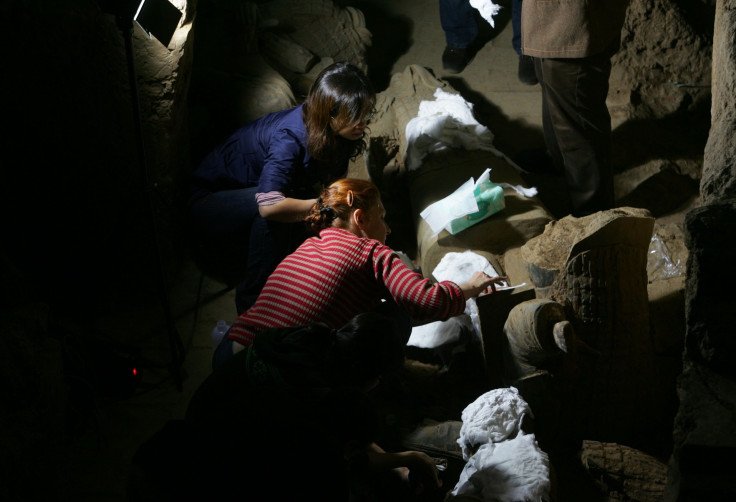Archeologists Find Ancient Wooden Slips Revealing Chinese Emperor’s Pursuit Of Immortality

China’s first emperor’s obsession with achieving immortality was revealed after 2,000-year-old texts written on thousands of wooden slats which talked about the quest to find the elixir of life were found.
China’s Xinhua News reported Sunday that a new research revealed Ying Zheng or Qin Shihuang, who created the world-famous terracotta army, ordered a nationwide hunt for the potion of immortality.
The wooden slips, on careful study, revealed an executive order from the emperor for the hunt along with replies from local governments. The report cited Zhang Chunlong, a researcher at the provincial institute of archaeology, as saying the emperor's decree reached even frontier regions and remote villages.
The replies by the governments, according to the BBC, were awkward with them having failed to find the key to eternal life. Langya , one of the localities apparently believed that "an herb collected from an auspicious local mountain" could be the elixir.
Another village called "Duxiang" reported that no potion had been found yet but implied that the search would continue, Xinhua said.
The finding of the wooden slips also demonstrated Ying Zheng’s control and centralization of power. “It required a highly efficient administration and strong executive force to pass down a government decree in ancient times when transportation and communication facilities were undeveloped," Zhang said.
The slips, over 36,000 of them, with more than 200,000 Chinese characters written on them, were found in 2002 in an abandoned well in Liye village, Longshan county in central province of Hunan. The slips dated from 222 BC to 208 BC and covered politics, military, economy, law, culture and medicine.
The study of the 48 medicine-related slips also revealed that the Qin Dynasty, through its 15 years’ lifespan, had a sophisticated medical system and documentation, and had multiple treatments that continued to be in use for a very long time.
Zhou Qi, an assistant research fellow at China Academy of Chinese Medical Sciences, said that people at the time were aware of various treatments of traditional Chinese medicine such as moxibustion, acupuncture, oral administration and topical therapy.
Doctors were allowed to treat patients only after receiving direction from the government, and the details of the administered treatment had to be recorded in official documents, the wooden slats said. The patients were mostly from the upper classes of the Chinese society.
In a previous study, the slips suggested Qin Dynasty already had a mail service, and maybe even express delivery.
The perception of historians of Ying Zheng, who lived from 259 BC to 210 BC, came from records, which said he was a brutal tyrant in China's feudal society and forced millions of land laborers into slavery and building the Great Wall, his imperial palace and his mausoleum.
His terracotta warriors also showed the importance he gave to immortality, according to Sputnik News. The 8,000 soldiers depicted his armies, including horses and chariots, and were arranged in his huge mausoleum to protect the emperor in the afterlife.
The recent discoveries shed light upon China's ancient medical history and filled in some gaps about the emperor's governance, Zhang said.
© Copyright IBTimes 2024. All rights reserved.





















